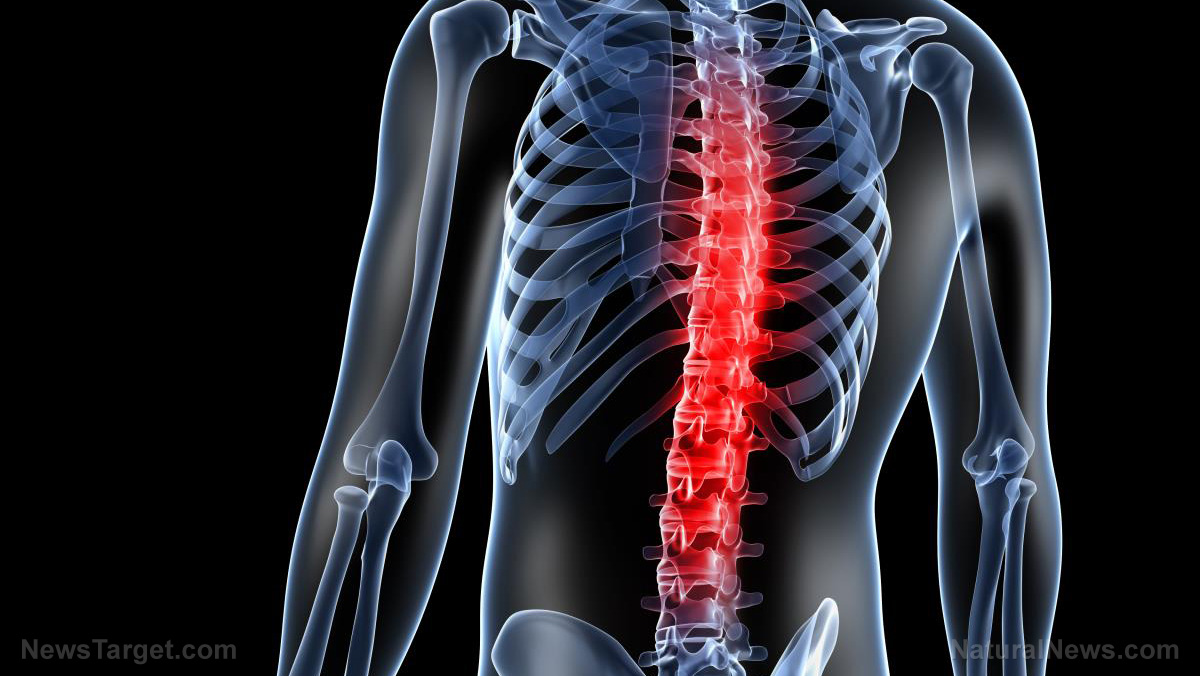Does “bad cholesterol” have a role in early-onset Alzheimer’s disease?
01/26/2020 / By Ralph Flores

Alzheimer’s disease is a chronic illness that robs a person of his memory and thinking skills. In the US, as many as five million adults suffer from this debilitating illness, with most symptoms appearing after age 60, based on data from the Centers for Disease Control and Prevention. However, there are some cases where people develop symptoms of the disease in their 40s and 50s, a condition called early-onset Alzheimer’s.
The etiology for Alzheimer’s — as well as other forms of dementia — is unclear, but a recent study in JAMA Neurology highlights the role of low-density lipoprotein (LDL) cholesterol and the risk of developing early-onset Alzheimer’s disease. In their paper, researchers from Emory University School of Medicine, together with the Veterans Affairs Medical Center in Atlanta, investigated the association between the two to identify any underlying potential risk factors.
Earlier studies have concluded that a link between high levels of LDL cholesterol and the onset of Alzheimer’s disease does exist. Also known as “bad” cholesterol, too much LDL cholesterol in the body causes clogged arteries, which increases the risk of cardiovascular disease. Elevated levels of LDL cholesterol can also affect Apolipoprotein E (APOE) E4 expression, a genetic variant linked to cardiovascular disease and Alzheimer’s disease.
“The big question is whether there is a causal link between cholesterol levels in the blood and Alzheimer’s disease risk,” explained Thomas Wingo, a neurologist at Atlanta VA and the study’s lead author. “The existing data have been murky on this point.”
The team looked at genetic data from over 2,000 participants, around 650 of whom had early-onset Alzheimer’s disease. They looked at APOE E4 expression and other potential genetic variants that have a link with early-onset Alzheimer’s. They also looked at associations between Alzheimer’s and plasma cholesterol levels by examining samples collected from research centers in Emory and the University of California (UC), San Francisco.
Based on the results, around 10 percent of people with early-onset Alzheimer’s had the APOE E4 variant. Moreover, the participants with elevated plasma LDL cholesterol were more likely to be diagnosed with early-onset Alzheimer’s than those with lower cholesterol levels. The association was consistent, even as the team adjusted their data to account for APEO E4 expression, which increases the risk independently. (Related: Alzheimer’s hits more than just the memory; patients experience immune system dysfunction as well.)
This suggests a potentially causal link between bad cholesterol levels and the disease – a hypothesis they are looking to explore in the future.
“One interpretation of our current data is that LDL cholesterol does play a causal role. If that is the case, we might need to revise targets for LDC [sic] cholesterol to help reduce Alzheimer’s risk,” Wingo added.
“Our work now is focused on testing whether there is a causal link.”
Prevent Alzheimer’s now by changing your diet
For many people, Alzheimer’s disease is a death sentence. But you can do something about it now, by increasing your intake of these healthy foods. (h/t to MindBodyGreen.com)
- Cruciferous vegetables: Broccoli, Brussels sprouts, bok choy and cauliflower are packed with carotenoids that help lower homocysteine, an amino acid linked to cognitive impairment.
- Leafy greens: Spinach, kale, collard greens and mustard greens contain folate, which boosts brain health.
- Fatty fish: Fatty fish are high in omega-3 fatty acids, which reduce the likelihood of developing brain lesions that cause dementia.
- Spices: Turmeric, cumin, sage and cinnamon break down harmful plaques in the brain, as well as reduce brain inflammation.
- Nuts: Aside from being rich sources of omega-3s, nuts like almonds, cashews, hazelnuts, walnuts and pecans contain vitamin E, folate and magnesium.
Other things you should consider to reduce your risk of Alzheimer’s are regular exercise, maintaining a healthy weight, stress management and proper sleep hygiene. Get more tips on how to keep Alzheimer’s disease at bay by following Alzheimers.news.
Sources include:
Submit a correction >>
Tagged Under:
Alzheimer's, Alzheimer's disease, bad cholesterol, brain function, brain health, cardiovascular disease, dementia, Diseases, fightobesity, heart disease, LDL cholesterol, medical research, prevention, research
This article may contain statements that reflect the opinion of the author
RECENT NEWS & ARTICLES
AntiAgingScience.News is a fact-based public education website published by Anti Aging Science News Features, LLC.
All content copyright © 2018 by Anti Aging Science News Features, LLC.
Contact Us with Tips or Corrections
All trademarks, registered trademarks and servicemarks mentioned on this site are the property of their respective owners.





















